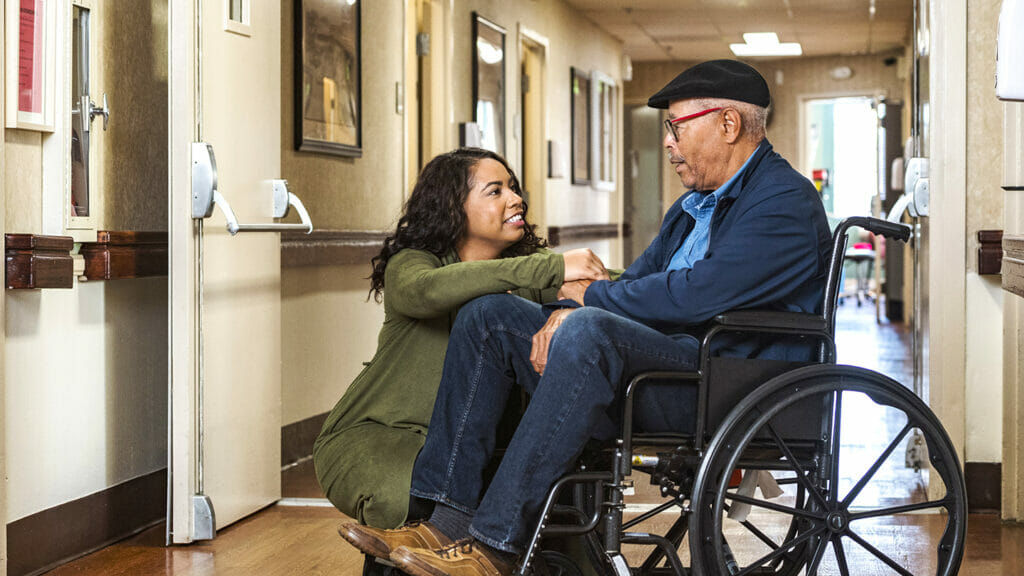
A bill recently introduced by Ohio lawmakers seeks to prevent pandemic-related isolation of residents in assisted living and other congregate living settings from ever happening again. But industry advocates say the Buckeye State already has addressed the issue with previously enacted legislation.
Ohio House Bill 236, named the “Never Alone Act,” aims to ensure that residents have access to an advocate — a spouse, family member, companion or guardian — who cannot be denied access to the resident, including in person in the congregate setting and via telecommunication, during public health emergencies and infectious disease outbreaks unless the resident does not want the individual to be present. In an attempt to balance residents’ rights with health and safety concerns of facilities, the bill also would relieve facilities from specific risks and liabilities associated with infectious disease exposure.
Long-term care groups, however, said that visitation in healthcare facilities such as assisted living communities and skilled nursing facilities already is “extensively covered” in Ohio law.
“Ohio’s residents’ bill of rights gives residents the right to visitation at all times, unless there are valid health or safety reasons for not allowing it,” Ohio Health Care Association Executive Director Pete Van Runkle told McKnight’s Senior Living.
He added that Ohio HB 120, which passed during the last legislative session, emphasizes vitiation rights in any future public health emergency. That bill also recognized that federally regulated facilities must follow applicable federal requirements.
“The just-introduced bill introduced problems by failing to adopt appropriate exceptions to visitation rights for health and safety and federal requirements,” Van Runkle said. “It also attempts to create a private right of action against providers, which is a non-starter for us.”
LeadingAge Ohio President and CEO Susan Wallace told McKnight’s Senior Living that its focus is on ensuring that the bill does not conflict with Medicaid, Medicare or other federal regulations that providers are required to follow.
“We have worked with the Ohio House in the past to clarify residents’ rights to have access to loved ones,” Wallace said, adding that the association is committed to mitigating social isolation. “It is imperative that aging services providers have clear, consistent guidance on how to minimize social isolation while also ensuring adequate infection control for vulnerable individuals.”
Bill co-sponsor state Rep. Melanie Miller (R-Ashland) said in a statement that the past three years have created a “heightened awareness” of the need for legislation to protect access to a loved one or advocate in healthcare facilities.
“Staffing shortages and severe inpatient facility visitation protocols left thousands of Ohioans without the attention they desperately needed, and even worse, many saw the end of their life in a cold empty room without a familiar voice or hand to hold,” Miller said.
State Rep. Beth Lear (R-Galena), a co-sponsor of the bill, added that the isolation long-term care residents endured during the COVID-19 pandemic “must never be allowed to happen again.”
Several states have passed legislation mandating that assisted living communities and skilled nursing facilities allow visitation, including Alabama, Connecticut, Illinois, Indiana, New York, North Dakota, Oklahoma, South Dakota, Texas and Washington.
A national essential caregivers program stalled shortly after it was introduced in 2021.
Argentum previously released an Essential Caregiver Toolkit to help senior living operators establish essential caregiver programs to combat the social isolation residents experienced during the pandemic.


